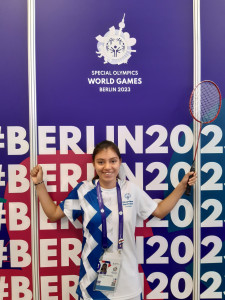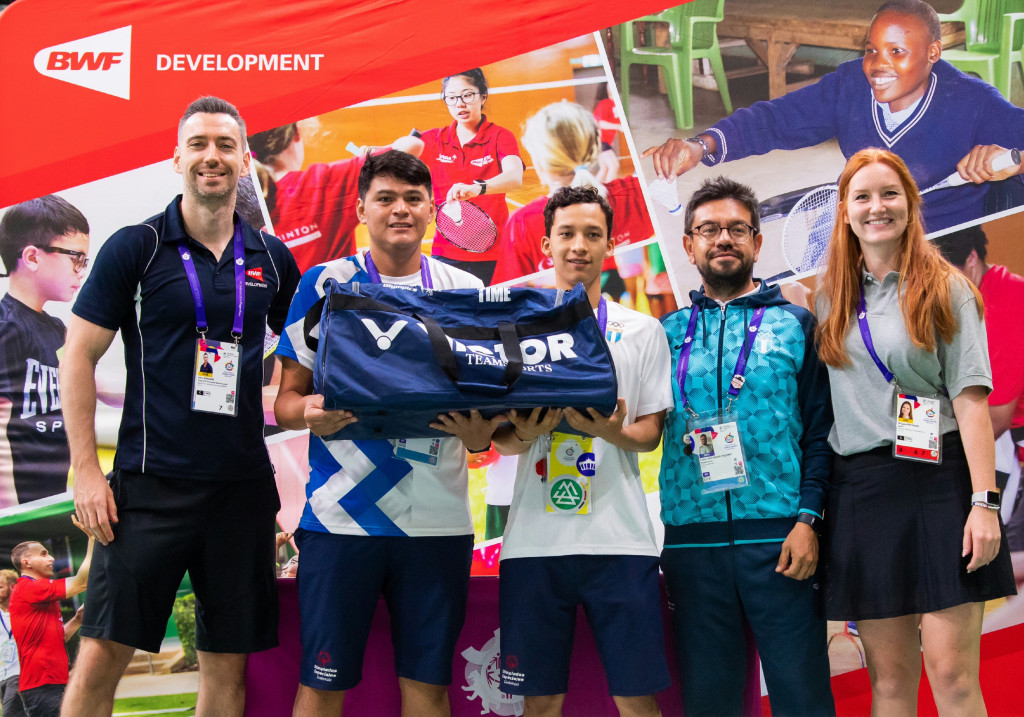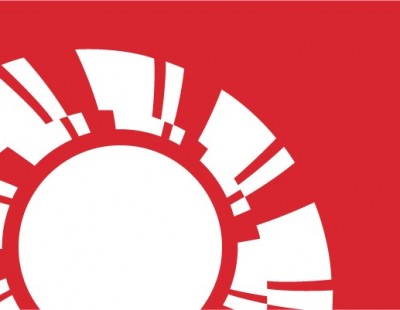Small in number, big on impact.
That’s how Guatemalan head coach Pablo Natareno views his close-knit group of badminton players at the recent Special Olympics World Games in Berlin.
Because for Natareno, it’s not about the size of the team in the fight, but the size of the fight in the team.
“That’s important because we are not Malaysia, Thailand, these big badminton countries,” he says above the noise of 10 matches in full flow at the Messe exhibition centre.
As the coach talks, his two players and their unified partners are mingling with members of the Paraguayan team. Beyond them on court, Peru are sizing up their opponents in the divisioning round, while Cuba are also in the hall.

Cobos excelled in Germany. Image by Philip Humphreys
Natareno explained: “Latin America is making the first steps in badminton at the Special Olympics. Four countries are here but four years ago (Abu Dhabi 2019 World Games) we were only two: us and Paraguay.
“And our team back home is also growing, because before Abu Dhabi we only had six players and right now we have a group of 18 unified partners and athletes playing Special Olympics badminton in Guatemala. We are expanding all the time.”
It can be no coincidence the two most recent World Games are separated by Tokyo 2020 and Kevin Cordon’s remarkable bid for only a second ever Olympic medal for Guatemala in any sport.
Cordon was eventually undone by Anthony Sinisuka Ginting in the men’s singles bronze medal match, but his standout performances led to a new wave of interest in badminton in his football-mad country of 18 million.
“He’s an inspiration,” SO player Odette Cobos says on the sidelines of Berlin 2023.
“I had my picture taken with Kevin on my birthday. He didn’t know it was my birthday, but for me this photo is so special. I met him at the federation in Guatemala. I’ve never seen him play in competition, but he was there training after us. He’s so good.”
Cobos used that encounter to effect at Berlin 2023, winning bronze in the women’s singles and unified doubles, and placing fourth in mixed doubles alongside Josue Rosales.
“When I was a kid, I didn’t understand how much I could play sport, but when I was 12 my mother and my godfather took me by motorcycle to a first training session in badminton. Now, seven years later, this is my sport and I’m so excited to participate in this competition.”
Rosales overcame his own reservations on his Special Olympics debut, claiming another bronze for Guatemala in the men’s unified doubles.
“In the beginning it was very difficult but now I have more self-confidence,” he says, a smile breaking across his face. “I’m learning so many things from badminton. It gives me friendship, respect and joy.”
When the conversation pivots to the future, Natareno is less certain. He is torn between wanting a new Kevin Cordon to emerge and inspire the next generation; and wishing the 36-year-old can go on defying the odds and flying the flag for Latin American badminton.
“It’s everybody’s goal to see Kevin, to see how much of a professional he is,” Natareno says.
“When he came back to Guatemala after Tokyo, the people welcomed him with placards. They even made a film about him, a documentary of his life called ‘Zurdo de Oro’ (The Golden Lefty). But he’s stayed humble and that’s a good example to them all.
“Hopefully we can see a few more good years of Kevin and some young players who can compete.”

Natareno (second right) encouraged by the growth of Guatemala’s Special Olympics team.































